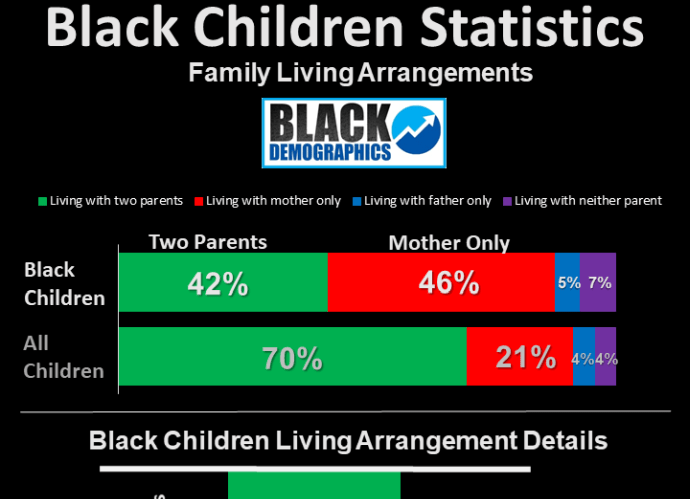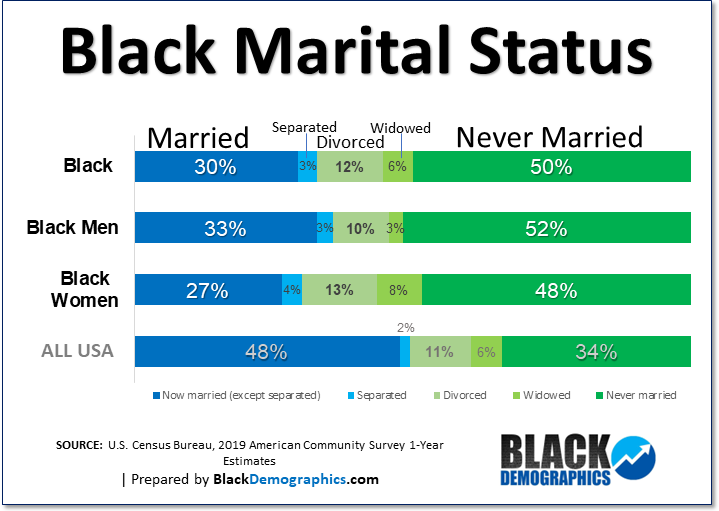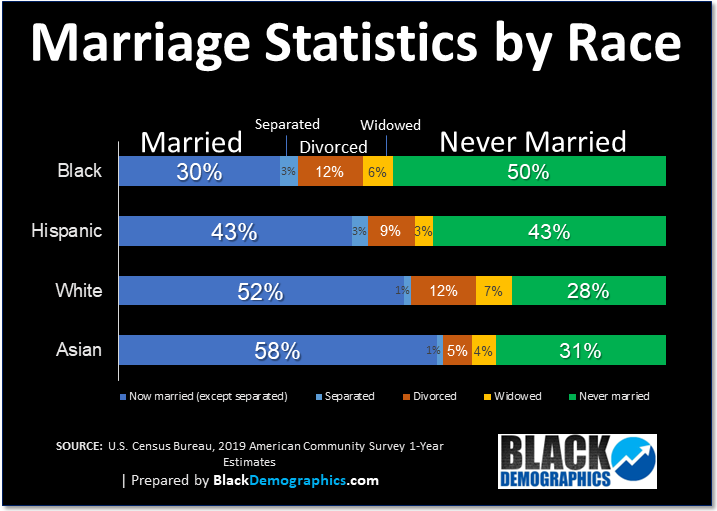Skip to comments.
7 Christian men or movements who helped end slavery in America
Christian Post ^
| 06/19/2023
| John B. Carpenter
Posted on 06/19/2023 10:03:37 PM PDT by SeekAndFind
Here are seven Christian individuals or movements that helped end slavery in America.
1. The Quakers
The Quakers were the first. The first official protest by a church against slavery in America was the Germantown (now part of Philadelphia) Quaker Petition Against Slavery in 1688. Soon, Rhode Island Quakers, led by Moses Brown (1738 –1836), pioneered freeing slaves; they founded the Providence Society for Abolishing the Slave Trade. John Woolman (1720-1772) devoted himself to campaigning against slavery, in 1754 writing Some Considerations on the Keeping of Negroes. His work was carried on by Benjamin Lundy (1789-1833), who edited the magazine Genius of Universal Emancipation.
2. Samuel Sewall
Puritan Samuel Sewall (1652-1730), in Massachusetts, wrote The Selling of Joseph in 1700, one of the first anti-slavery books. Sewall showed how biblical passages that some in his day used to support slavery actually refute it. He declared, “It is most certain that all Men, as they are the Sons of Adam, are Coheirs; and have equal Right unto Liberty.” Ironically, he’s most remembered for being the presiding judge in the Salem Witchcraft trials for which he apologized.
3. Samuel Hopkins
Samuel Hopkins (1721-1803), a disciple of Jonathan Edwards, while having held some household slaves himself, like his mentor, turned against slavery, leading his church to become the first recorded confessional church to openly preach against slavery. In 1776, Hopkins published a pamphlet entitled, “A Dialogue Concerning the Slavery of the Africans” in which he referred to slaves as “our brethren and children.” He declared that it was the duty of the new United States to free them. He later established a training school for freed slaves to become missionaries.
4. Jonathan Edwards the Younger
Jonathan Edwards (1745-1801) the younger was the son of a leader of the Great Awakening and the esteemed theologian who is now criticized for his owning slaves. The younger Edwards followed his father’s theology and faith but not his acceptance of slavery. In 1773, he published his abolitionist views in a series of articles entitled “Some Observations upon the Slavery of Negroes” and “An Address to Americans, Upon Slave-Keeping.” He preached passionately against slavery in a sermon entitled “The Injustice and Impolicy of the Slave trade” (September 15, 1791) based on Jesus’ golden rule. Edwards’ activism modeled for other ministers and abolitionists how to use Scripture to oppose slavery. In 1798, Robert Wilson, pastor of a church in South Carolina, wrote him for guidance. Wilson feared opposing slavery would get him prosecuted for sedition. Edwards’ encouraged Wilson to stay in the ministry and undermine slavery. “We must not be discouraged ... Light on that subject may be diffused gradually” in the South. After all, in Edwards’ youth Connecticut had been “in as great darkness concerning the rights of the Negroes, as South Carolina is now.”
5. Lyman Beecher
Lyman Beecher (1775 -1863) targeted slavery as one of the chief sins he aimed to eradicate in the new United States. In 1804 Beecher wrote, The Practicality of Suppressing Vice by Means of Societies Instituted for that Purpose. Around 1813, he founded the Connecticut Society for the Suppression of Vice and the Promotion of Good Morals. His strategy was to use voluntary societies to affect a moral revolution in America and one of the chief sins to be conquered was slavery. William Lloyd Garrison (1805-1879) joined the church that Beecher pastored and was motivated by Beecher’s preaching to support of the American Antislavery Society, although Beecher was an incrementalist and Garrison was an “immediatist.” Beecher’s daughter, Harriet Beecher Stowe (1811-1896), wrote the influential anti-slavery novel Uncle Tom’s Cabin.
6. Converts of the Second Great Awakening
The “Second Great Awakening” produced multitudes of American Christians who opposed slavery. The “Second Great Awakening” was actually the continuation and expansion of the evangelical awakening of the 1700s, begun under Jonathan Edwards and George Whitefield. Abolitionism was often part of revivals of the early 19th century. The Methodists grew enormously at this time. They were encouraged by their founder, John Wesley (1703-1791) to oppose slavery. In 1800, the Methodist General Conference declared that slavery was “repugnant to the unalienable rights of mankind, and to the very essence of civil liberty.” The Methodists produced spin-off denominations like the African Methodist Episcopal Zion Church which, in 1839, licensed a preacher who became one of the most powerful voices for abolition: Frederick Douglass (c. 1817-1895). Also, Presbyterian revivalist Charles Finney (1792-1875) spread abolitionism along with his revivals. He wrote, “In my prayers and preaching, I so often alluded to slavery, and denounced it.”1 Converts who held slaves were required to repent and free them. Finney stated, “Perpetrators [of slavery] cannot be fit subjects for Christian communion and fellowship.”2 Finney influenced Theodore Weld (1803-1895) to oppose slavery. Weld would go on to recruit thousands of people to join the cause of abolition, co-write America Slavery As It Is (1839) with his wife Angelina Grimké (1805-1879) and her sister Sarah, and edit the magazine TheEmancipator.
7. Robert W. Fogel
Robert Fogel (1926-2013) isn’t a Christian who helped end slavery but the foremost expert on slavery who found that Christians ended it. He won the 1993 Nobel in Economics for his research into American slavery. Though a professed “secular Jew,” Fogel concluded that Christians ended slavery. Fogel discovered that Southern slave plantations were 36% more efficient than free Northern farms. Thus slavery was not undone because of economic reasons but because evangelical Christians, like the Baptist Francis Weyland (1796-1865), turned the tide of popular opinion in America against it so that by 1860, Americans were willing to vote for an anti-slavery president, setting off the chain of events that would lead to Juneteenth.
1. Charles G. Finney, Memoirs (New York: A.S. Barnes, 1876), 324.
2. Finney, Charles Grandison. Lectures on Revivals of Religion. Grand Rapids, MI: Christian Classics Ethereal Library, p. Lecture xv, Hindrances to Revivals.
John B. Carpenter, Ph.D., is pastor of Covenant Reformed Baptist Church, in Danville, VA. and the author of Seven Pillars of a Biblical Church (Wipf and Stock, 2022) and the Covenant Caswell substack.
TOPICS: History; Moral Issues; Religion & Culture; Religion & Politics
KEYWORDS: 13thamendment; abolition; christians; civilwar; slavery; thecivilwar; thirteenthamendment
Navigation: use the links below to view more comments.
first 1-20, 21-26 next last
To: SeekAndFind
2
posted on
06/19/2023 10:51:37 PM PDT
by
Milagros
(Y)
To: SeekAndFind
Slavery didn’t end. People became slaves to the government.
To: SeekAndFind
Now what? We have a multicultural and diversity mess.
To: SeekAndFind
Slavery, slavery, slavery!!
Y'all treat it like "Roots" was a documentary and not proven to be 99% pure droppings from a bulls behind.
Yes there were slaves- and.. Omg!, whites were also slaves!!
By 1860 the south was sick and tired of the northern states taxing their commerce, tired of being treated like 2nd class citizens, tired of the north acting like the crooked HOA board of the entire U.S.
lincoln was handed a country that was already tearing apart and he grabbed the northern states side of the covers and ripped the whole thing in half, and then destroyed the constitution and burnt down the half he couldnt control.
Abolishing slavery was nothing more than the straw that broke the camels back. and looking at what the government has done to 1/2 of blacks, blacks have sold their souls back to, and become the government's slaves.
Slavery slavery slavery! Its always slavery!!! /s
p.s. no one isgoing to africa to ask for reparations from the blacks who captured And sold other blacks interested slavery!!
Why punish the drug user when getting rid of the dealers would be the solution to the problem?? without dealers there would be fewer drugs.
5
posted on
06/20/2023 4:04:32 AM PDT
by
Ikeon
(All the evidence in the world wont change the mind of an idiot or fool. )
To: Ikeon; ConservativeMind; ealgeone; Mark17; BDParrish; fishtank; boatbums; Luircin; mitch5501; ...
looking at what the government has done to 1/2 of blacks, blacks have sold their souls back to, and become the government's slaves. [1] Data from U.S. Census reports reveal that between 1880-1960, married households consisting of two-parent homes were the most widespread form of African-American family structures. Although the most popular, married households decreased over this time period. Single-parent homes, on the other hand, remained relatively stable until 1960; when they rose dramatically. A study of 1880 family structures in Philadelphia, showed that three-quarters of Black families were nuclear families, composed of two parents and children. In New York City in 1925, 85% of kin-related Black households had two parents. In 1991, 68% of Black children were born outside of marriage. In 2011, 72% of Black babies were born to unmarried mothers. In 2015, 77% of Black babies were born to unmarried mothers. https://en.wikipedia.org/wiki/African-American_family_structure
[2] From 1980 thru 2008 93% of black victims were killed by blacks. (https://www.bjs.gov/content/pub/pdf/htus8008.pdf)
[3] By almost every measure African Americans socioeconomic conditions were better in 1970 than in 1940....Despite these economic and social advances black crime began to escalate markedly in the late 1960s and continued to play a major role in the multi-decade crime boom that followed. (https://www.hoplofobia.info/wp-content/uploads/2015/08/2018-African-American-Crime-Rates.pdf)
[4] homicide-victimization rates for black men were 3.9 times the national average and that 52 percent of all known homicide victims were black (2017 data)In 2018, where the homicide victim was black, the suspected killer also was 88 percent of the time. From 1976 to 2005, 94 percent of black victims were killed by other African Americans...From 2000 to 2015, the mean African-American homicide-victimization rate, adjusted for age, was 20.1 per 100,000. That’s more than three times the Hispanic rate of 6.4 (despite disadvantages comparable to those of blacks) and over seven times the average white rate, 2.7. Moreover, as already noted, from 1976 to 2005, 94 percent of the killers of black murder victims were other African Americans. (https://www.nationalreview.com/magazine/2019/12/22/the-need-to-discuss-black-on-black-crime/)
In 2012 The U.S Census Bureau released a report that studied the history of marriage in the United States. They discovered some startling statistics when calculating marriage by race. They found that African Americans age 35 and older were more likely to be married than White Americans from 1890 until sometime around the 1960s. Not only did they swap places during the 60s but in 1980 the number of NEVER married African Americans began a staggering climb from about 10% to more than 25% by 2010 while the percentage for White women remained under 10% and just over 10% for White men. The first two charts below are charts included in the report only the headings have been altered by BlackDemographics.com to outline these findings.


 -BlackDemographics.com © 2022 https://blackdemographics.com/households/marriage-in-black-america/
-BlackDemographics.com © 2022 https://blackdemographics.com/households/marriage-in-black-america/
The issue is that of culture, not color, of sin not skin.
A-PC Berkeley study published in 2007 of the attitude and treatment of recent African immigrants by American blacks serves to illustrate this (FR thread). Excerpt:
"Growing up in Africa . . ., the culture of White racism and prejudice was not part of the African upbringing . . . . [w]e were aware of the history of slavery but, in all cases, we were wil ling to forget and forgive. It never occurred to us that we would be the targets of hate simply because of the color of our skin. Interestingly, ou r Black and brown skins did not open the doors wide for us in the African American community either. We were, and remain to many African Americans, outsiders or beneficiaries of their struggle against a racist society. If we are too successful and live in a nice White neighborhood, then we are accused of betraying our race, being "Black Bourgeois" and wanting to be White. To White neighbors, we are safe because we are Blacks from Africa . . ., not from the South or Brooklyn and, to their stereotypical way of thinking, we do not do drugs or alcohol or have big late night parties."
The higher rates of violence in American black culture is related to the decline of the traditional black family which liberal policies fostered.
6
posted on
06/20/2023 4:38:02 AM PDT
by
daniel1212
(As a damned+destitute sinner turn 2 the Lord Jesus who saves souls on His acct + b baptized 2 obey)
To: tired&retired
And to their emotions.
and DEMAND for ‘RESPECT’ as well.
7
posted on
06/20/2023 5:45:20 AM PDT
by
Elsie
(Heck is where people, who don't believe in Gosh, think they are not going...)
To: daniel1212
The higher rates of violence in American black culture is related to the decline of the traditional black family which liberal policies fostered. It then is time; nay - PAST time; to eliminate them!
8
posted on
06/20/2023 5:48:38 AM PDT
by
Elsie
(Heck is where people, who don't believe in Gosh, think they are not going...)
To: SeekAndFind
My Irish family were the first slaves in the new world. We have documented proof, too.
9
posted on
06/20/2023 5:54:04 AM PDT
by
CodeToad
(No Arm up! They have!)
To: SeekAndFind
How about Abraham Lincoln who slaughter 600,000 white men to free the black slaves. Too straight forward?
Comment #11 Removed by Moderator
To: ping jockey
What were murder rates during The Great Depression?
12
posted on
06/20/2023 6:29:43 AM PDT
by
dfwgator
(Endut! Hoch Hech!)
Comment #13 Removed by Moderator
To: Ikeon
To your last question…easier to say than do
14
posted on
06/20/2023 7:16:48 AM PDT
by
Nifster
( I see puppy dogs in the clouds )
To: DownInFlames
Or had the south not started a war no one would have died in war
Lincoln did not kill anyone. But nice try
15
posted on
06/20/2023 7:18:48 AM PDT
by
Nifster
( I see puppy dogs in the clouds )
To: Ikeon
The Confederates were the ones ripping THE UNION APART.
16
posted on
06/20/2023 8:05:28 AM PDT
by
cowboyusa
(YESHUA IS KING OF ADCMERICA! AMERICA FIRST! DEATH TO MARXISM AND GLOBALISM!)
To: DownInFlames
Andrew Jackson would have won the War in 3 Months.
17
posted on
06/20/2023 8:07:08 AM PDT
by
cowboyusa
(YESHUA IS KING OF ADCMERICA! AMERICA FIRST! DEATH TO MARXISM AND GLOBALISM!)
To: SeekAndFind
Among the first things the new Congress did was to copy the British Parliament in outlawing the Atlantic African slave trade which paved the way to the Amistad Case, in which John Quincy Adams took part in successfully defending African slaves who had taken over a Portuguese ship and killed some crew members.
18
posted on
06/20/2023 9:55:33 AM PDT
by
Hiddigeigei
("Talk sense to a fool and he calls you foolish," said Dionysus - Euripides)
To: SeekAndFind
No thread on Christians ending slavery in America should be without mention of he who led the fight to end slavery in Great Britain, William Wilberforce.
19
posted on
06/20/2023 11:24:21 AM PDT
by
Hebrews 11:6
(“The wicked freely strut about when what is vile is honored among men.” Psalm 12:8)
To: SeekAndFind
Nice, but where is the REPUBLICAN PARTY !!!
The Republican party formed in 1854 in direct response to the democrats attempt to overturn the Missouri compromise with Douglas Kansas-Nebraska act.
By 1860, the Republicans took the Presidency and the House.
The democrats kept the Senate and the Judiciary - but they then seceeded.
Spoiled brat - John Calhoun Breckenridge - Vice President - split the democrat party in two. A key reason for the democrat failure in the 1860 election. He then was appointed Senator, before fleeing to become a Confederate General. He was then EXPELLED from the Senate FOR TREASON.
The Republican party then fought and won the war. ENDED SLAVERY. And rebuilt the Union.
20
posted on
06/20/2023 12:10:09 PM PDT
by
Pikachu_Dad
("the media are selling you a line of soap)
Navigation: use the links below to view more comments.
first 1-20, 21-26 next last
Disclaimer:
Opinions posted on Free Republic are those of the individual
posters and do not necessarily represent the opinion of Free Republic or its
management. All materials posted herein are protected by copyright law and the
exemption for fair use of copyrighted works.
FreeRepublic.com is powered by software copyright 2000-2008 John Robinson


 -BlackDemographics.com © 2022 https://blackdemographics.com/households/marriage-in-black-america/
-BlackDemographics.com © 2022 https://blackdemographics.com/households/marriage-in-black-america/